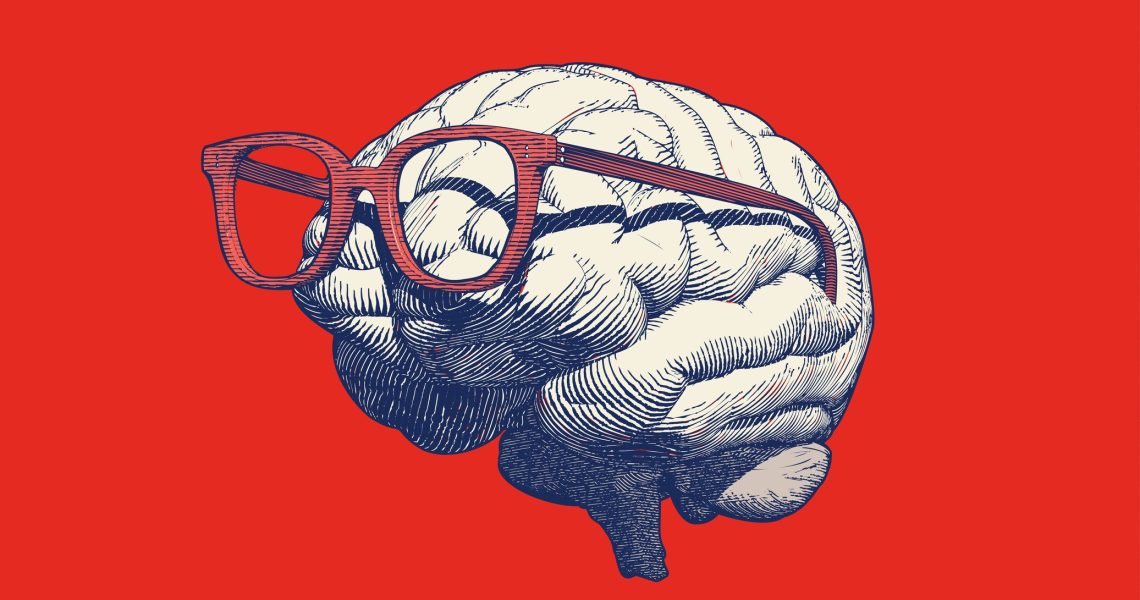Mind Over Matters
November 5, 2021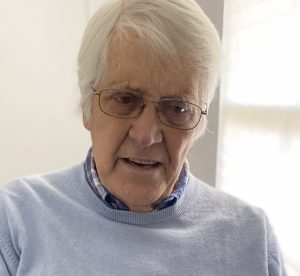 By Merlyn Karst
By Merlyn Karst
President, The Purpose of Recovery
karstmj@gmail.com
We celebrated September as Recovery Month. For me and others, October has been Discovery Month. In that regard, I am reminded of the quote from Albert Einstein, “Condemnation without investigation is the height of ignorance,” We have heard the expression mind over matter. The science of addiction tells us that the brain is very active in determining the best ways to handle pleasure and pain. For pain it wants less of it and for pleasure it wants more of it. The brains receptors are tuned to how the chemical dopamine is produced and the best neuron pathways from which to receive reward. As addiction progresses, it blocks other functioning pathways to the other parts of the brain. It guides reason and rationale in harmful ways. Cravings crowd out thoughts beyond the many ways to sourcing dopamine. Mind over matters seems not to matter. The Purpose of Recovery RCO has presented monthly workshops, the most recent was titled, Mindfulness Based Relapse Prevention (MBRP). The workshop describes mindfulness as “not getting lost in our thoughts of the past, anxieties about the future and not ‘being happy’ all of the time but rather learning to be with the entire spectrum of our emotional experience.” A pretty good offset to mindlessness and a demand to avoid being on auto pilot—stay tuned to the present moment. Breathing comes naturally but being aware of every breath is calming and reassuring. During the mindfulness, there is an audience of one—you. I choose to seek a quiet mind, peaceful heart, and purpose.
 I found the discussion about relapse gave me a new perspective. It breaks down relapse into the lapse and then the relapse. Lapse is what happened after the initial drink or substance use. It may be followed by shame, guilt, and remorse—if we let it. However, there is this, “well I’ve done it, I might as well….” Now, its “relapse.” So how do we prevent “lapse.”? Prevention ultimately talks about triggers. In my understanding, a trigger has a function if there is a something to trigger. A clouded mind with cravings, discomfort, and restlessness, may be considered loaded. Curiously, I found this statement useful. “We encourage curiosity about our experience and our reaction and encourage a curiosity about cravings.” In today’s world, science provides some answers in Medication Assisted Recovery (MAR). Be curious about this and disregard some unwarranted stigma. Another hard thing to realize is that thoughts are just thoughts. We are advised to stay present in triggering moments and recognize high risk situations. I believe the word relapse is shaming and prefer setback. One can get back— on track—and not look back. Use the word that suits you but practice mindfulness in either or other words. The workshop was recorded and can be accessed by the following link https://us02web.zoom.us/rec/share/03C1edPzVdmzol5knn8Elx7Tix3VYQmj9R8YEUwxGTNDOwSeLw-2zi5qqKqUaRhC.o0qs2W8ego9ie9Ng
I found the discussion about relapse gave me a new perspective. It breaks down relapse into the lapse and then the relapse. Lapse is what happened after the initial drink or substance use. It may be followed by shame, guilt, and remorse—if we let it. However, there is this, “well I’ve done it, I might as well….” Now, its “relapse.” So how do we prevent “lapse.”? Prevention ultimately talks about triggers. In my understanding, a trigger has a function if there is a something to trigger. A clouded mind with cravings, discomfort, and restlessness, may be considered loaded. Curiously, I found this statement useful. “We encourage curiosity about our experience and our reaction and encourage a curiosity about cravings.” In today’s world, science provides some answers in Medication Assisted Recovery (MAR). Be curious about this and disregard some unwarranted stigma. Another hard thing to realize is that thoughts are just thoughts. We are advised to stay present in triggering moments and recognize high risk situations. I believe the word relapse is shaming and prefer setback. One can get back— on track—and not look back. Use the word that suits you but practice mindfulness in either or other words. The workshop was recorded and can be accessed by the following link https://us02web.zoom.us/rec/share/03C1edPzVdmzol5knn8Elx7Tix3VYQmj9R8YEUwxGTNDOwSeLw-2zi5qqKqUaRhC.o0qs2W8ego9ie9Ng
Mindfulness sets us up to learn. There is a term “old school.” I’m old but I have been schooled in the here and now. As a member of the founders of Faces and Voices of Recovery, I was pleased to attend their 20th anniversary in a virtual celebration and leadership conference. The 2001 Recovery Summit marked a clarion call to shift the center of the alcohol and other drug problems arena to a focus on the lived solution for individuals, families, and communities. It marked the passing of the recovery advocacy leadership torch from an earlier generation of advocacy organizations. Now there are many torches in many hands lighting the many paths to recovery out of darkness. Associations and collaborations emerge from the shadows.
CCAPP (California Consortium of Addiction Programs and Professionals) held its Addiction Conference in late October in Newport Beach. The Purpose of Recovery (TPOR.org) was a sponsor, contributor, and many TPOR team members attended. The speakers were prepared professionals and presented information, statistics, and future projections to inform and motivate. Phil Rutherford, CEO of Faces and Voices of Recovery and others gave considerable focus to diversity, equity, and ethics. I took copious notes of discovery. A historical moment: “Too many notes, dear Mozart, too many notes’ is what Emperor Joseph II supposedly said after the first performance. Mozart’s reply, ‘Just as many as necessary, Your Majesty.”
Pete Neilson, CEO of CCAPP was animated, informative, and personal, and gave me insight to Harm Reduction. It is a set of practical strategies and ideas aimed at reducing negative consequences associated with drug use. Just as the many paths to and of recovery do, it broadens the spectrum of chance, choice, and change. I learned a new word from Pete— gradualism. It expresses the realistic and practical side of harm reduction. It also adds credence to my support of medically assisted recovery to allow the return of rationale and reason. I repeat, curiosity will lead to healthy, helpful, and hopeful learning. I heard a statement, “What the people need is a good listening to” John Steinbeck wrote about storytellers and their importance to some semblance of well-being in the California camps and the gatherings during the depression, drought, and dust bowls— the “dirty thirties.” “And it came about in the camps that the storyteller grew into being, so that the people gathered in the low firelight to hear the gifted ones and the people listened, and their faces were quiet with listening”. Oh, and there was music. So many western songs have sweet and sorrow lyrics. My latest find was this lyric, “and once upon a time, You turned the water into wine, An’ now, on my knees, I’m turning to You, Father, Could You help me turn the wine back into water? Wishes and worries don’t change the past. Be in the know and now. I leave you with this thought. Being ashamed brings regret and remorse. Being shamed brings resentment and retribution. Words matter.
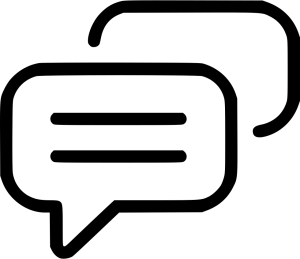 JOIN THE DISCUSSION
JOIN THE DISCUSSION
Add your thoughts about Mind Over Matters by submitting your comments in the reply box below. All comments are moderated prior to being posted on the web site. Thank you.
ABOUT THE PURPOSE OF RECOVERY
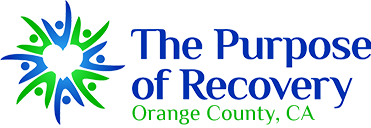 The Purpose of Recovery is a nonprofit, grassroots, peer-led recovery community in Orange County, CA. They connect with local, state, and national recovery communities to support long term recovery.
The Purpose of Recovery is a nonprofit, grassroots, peer-led recovery community in Orange County, CA. They connect with local, state, and national recovery communities to support long term recovery.
The Purpose of Recovery offers peer-to-peer support. Whether you are an individual in recovery from substance use disorder, a parent, partner, or concerned friend you will find peers who understand the unique challenges you face.
Learn more at https://thepurposeofrecovery.org/.
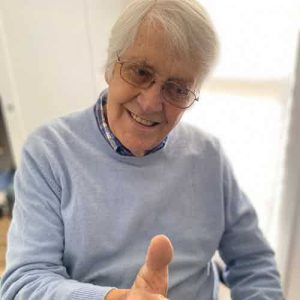
ABOUT THE AUTHOR
Merlyn Karst is a person in long-term recovery and a recovery advocate and Recovery Ambassador. He is a founder of Advocates for Recovery—Colorado and The Purpose of Recovery, California. Also, one of the founders of Faces and Voices of recovery. He is a writer and speaker about social issues surrounding the inappropriate use of alcohol and other drugs leading to substance use disorders, a mental health issue. He is particularly attentive to Peer driven support and services and their societal and economic benefits. They also provide reason and resources to reduce recidivism.
SUBMIT A GUEST BLOG
Are you interested in writing a guest blog for The Recovery Word? Click here for additional information.
